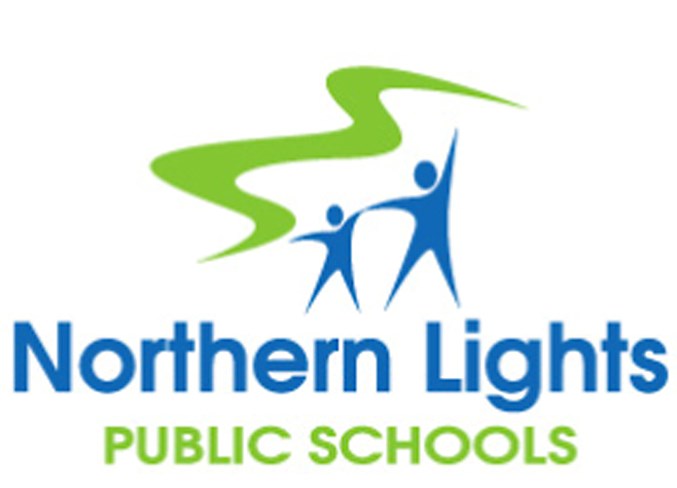LAKELAND – Nearly 100 educational assistants and over 280 students are being impacted across the Northern Lights Public Schools (NLPS) district due to what the school division says are substantial delays and uncertainty in receiving federal funding.
On April 3, NLPS announced that, due to the delays and uncertainty, it has made the decision to discontinue offering essential supports to First Nations students through the Jordan’s Principle initiative.
This change will have a considerable impact on educational assistants (EAs) within the school division.
Jordan’s Principle is a federal government program that ensures First Nations children across Canada can access services and supports they need to be successful.
As stated in information from NLPS, a large portion of the funding that comes through the Jordan’s Principle program is used to employ educational assistants. Northern Lights Public Schools stated that over the next couple of weeks, the school division will be making staffing adjustments at its schools to address the shortfall in federal funding.
According to Nicole Garner, the communications and public relations manager for NLPS, these adjustments will be significant.
“This will impact just over 100 educational assistants employed at schools throughout the division,” Garner told Lakeland This Week.
Rick Cusson, superintendent for Northern Lights Public Schools, commented on the update regarding the discontinuing of supports for Jordan’s Principle.
“These services are essential for our students, and we have done everything possible to continue them for as long as we could,” said Cusson. “However, without confirmation of funding from the federal government, and with our financial reserves depleted, we can no longer sustain these services on our own.”
In July 2024, NLPS submitted a funding application for Jordan’s Principle for the 2024-25 school year. While this application followed the same criteria that had been approved in previous years, after it was sent it, the federal government changed its approval process, which meant shifting applications from a regional to a national level.
“This has created a significant backlog affecting school divisions, families, and organizations across Canada,” according to the information from NLPS.
The funding that is provided for Jordan’s Principle, in addition to covering the cost of educational assistants, is also used for specialized services. These services include occupational therapy, speech therapy, physical therapy, as well as resources such as Augmentative and Alternative Communication (AAC) devices.
“Over 280 students currently receive a variety of services through Jordan’s Principle and the cost of providing all of these services, including educational assistants, for the 2024-25 school year was budgeted at over $7 million,” said NLPS.
The school division hired educational assistants and arranged for contracted services so that supports would be available for students starting in September. Despite some uncertainty surrounding the new process, funding approvals in previous years were confirmed between December and February, and officials remained optimistic that would continue to be the case again this year, according to NLPS.
Funding uncertainty escalated in December when school division officials learned that some other school divisions had their applications rejected and others were discontinuing services due to uncertainty with the process and timing.
At that time, the NLPS board of trustees and administration made the decision to continue to front the cost of providing the services, using money from school board reserves, so that students could continue to receive supports for as long as possible.
In a statement released on Feb. 10, the Government of Canada spoke about changes that were being made to Jordan’s Principle.
According to the federal government, since Jordan’s Principle was implemented in 2016, requests through the program have grown exponentially. There were 614,350 requests approved in 2021-22, compared to almost three million requests approved in 2023-24, a 367 per cent increase.
It is for these reasons, the federal government said it is implementing new ways to process requests to expedite decision-making and address the increased demand.
To address the increased volume, the Government of Canada has made changes to operating procedures to make sure requests align with the long-term sustainability of Jordan’s Principle.
“These changes provide further clarity and consistency around the services available for First Nations children through Jordan’s Principle, as well as the required documentation that is needed when processing requests,” according to the Government of Canada.
Patty Hajdu, the Canadian minister of Indigenous Services, commented in the statement.
“When it comes to Jordan’s Principle, our top priority and our intention have not changed - making sure First Nations children have access to the products, services and supports that they need,” said Hajdu.
NLPS said it has put in multiple requests with the program, and despite the inquiries, the school division has not received confirmation of whether its application will be approved or when a decision will be made.
“By the end of March, we had spent over $3.6 million on these services,” according to information from NLPS. “With provincial restrictions on school board reserve funds and a planned $4.7 million deficit for this school year, we are no longer in a financial position to continue without confirmation we will be receiving federal funding.”
Cusson said school divisions recognize the impact this decision will have on its students and the staff.
“We will continue to press for the approval of our application while also advocating for long-term solutions at both the federal and provincial levels to ensure all students receive the support they need.”
The school division stated if it receives full or partial approval for its application later this year, some services through the Jordan’s Principle program may be reinstated for the remainder of the 2024-25 school year.
However, recent changes to funding criteria will likely reduce services for 2025-26, and officials are also working to gain clarity on how this will affect students moving forward.


